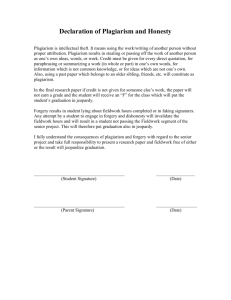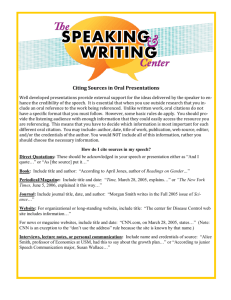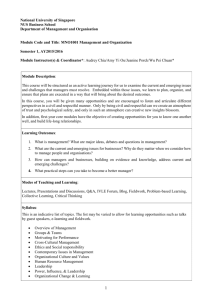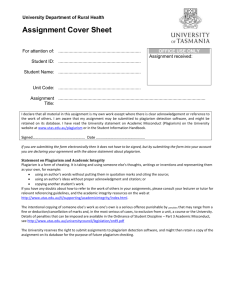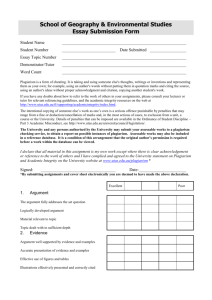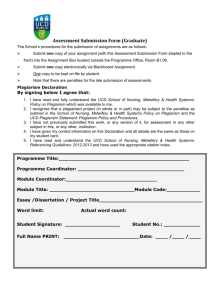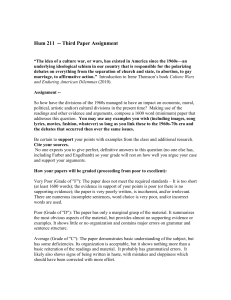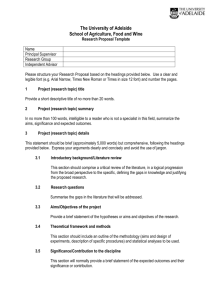Project and Report
advertisement
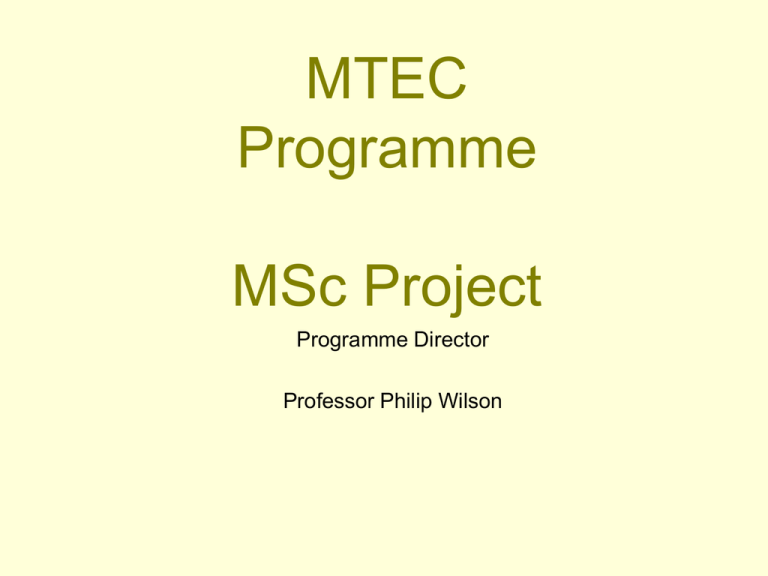
MTEC Programme MSc Project Programme Director Professor Philip Wilson Introduction – objective to test your hypothesis (a clearly defined problem) – generally to find new information – a large piece of work so requires careful planning and management – you research and deliver a research report on a professional topic of your choice – use knowledge learned during your course and have engineering content Project Planning Types of Research Project Four main types :– 1. all types include a critical literature review of the state-ofthe-art Theoretical project – – 2. an ideal or hypothetical work + literature review no experimental work. Experimental project – 3. includes research in a laboratory, or fieldwork, or market research questionnaires, case studies to obtain data for analysis. + literature review Review project – – 4. only a comprehensive & critical literature review no theoretical or experimental work. Combination project (of theoretical & experimental) – Recommend this approach – not 3. Project Planning Choosing your research topic 1. Your interests & career development – 2. Topics which interest and will benefit your career development. Your course & the media – 3. Interesting or current topics from lectures, journals, television, the internet, etc. Academic staff – – Academic staff are pleased to advise you on your proposals. Don’t hesitate to contact the Programme Director or the Director of Studies at the university at which you are enrolled. Contact details are available from the Programme Administrator. If you cannot think of your own topic, staff may suggest topics which they are interested in. Project Planning Defining your research topic 1. Defining:– – – – 2. Clearly defined topic / problem / need / hypothesis Has a beginning, middle, end Realistic “tight” problem with goals achievable within time & resources available Danger of being too ambitious (supervisor advises you) Deliverables – – – – Project Specification Project Plan Literature Review Final MSc Project Report. Project Assessment Procedures & penalties for plagiarism 1. Plagiarism: To take and use another’s (writing, ideas, etc) as one’s own. – Using or copying the work of other people and claiming falsely that it is your original work and denying due credit to the original author. Either accidentally or deliberately. – http://www.ncl.ac.uk/library/copyright.php 2. How to avoid plagiarism – Many research reports are based on the work of other people, their ideas, text, pictures, etc. (e.g. your literature review is of the work of others). – “If I have seen farther than other men, it is because I have stood on the shoulders of giants." [Isaac Newton : of Galileo & others] – Distinguish clearly between your work (your ideas / intellectual contribution) and the work of others or what is known generally in the public domain. [continued] Project Assessment Procedures & penalties for plagiarism 3. How to avoid plagiarism [continued] – Reference the work of others in your report to give them full credit [Smith 2005]. Including all illustrations, tables, etc. – Summarise the work of others in your own words with a reference [Smith 2005] or use their original words in “quotation marks” [Smith 2005] with a reference. 4. Penalties for plagiarism – 0 marks awarded and University disciplinary procedures started. Project Management Supervisory Support 1. Students are responsible – – 2. your project, your responsibility. you plan and manage it. Information and advice – – – 3. literature search for relevant publications (library & information services including the Web). people (project supervisor, academic staff, external organisations & industry). your own work data collection & analysis (lab or fieldwork experiments, market research). Project supervisor – regular meetings to monitor progress and review objectives. Summary • Plan and manage your project. • Regular progress updates with your project supervisor. • Seek further help immediately if necessary. • Enjoy your opportunity to research a topic which interests you and you selected.
